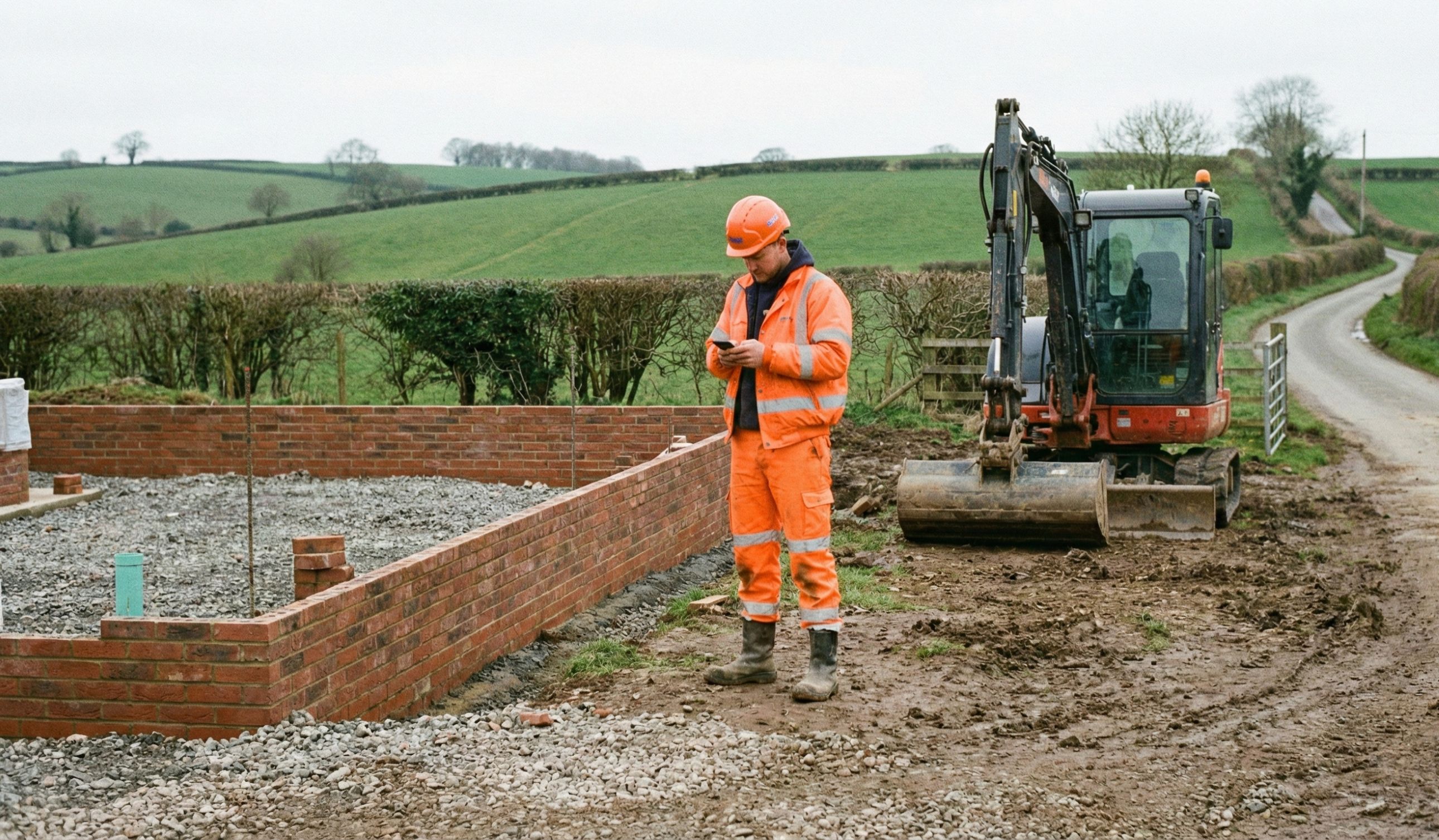The UK government has several lone working regulations to protect the significant number of lone workers among UK companies.
In essence, working alone legislations are there to do two things – ensure employees’ safety and protect companies from liability. All parties have their role to play, from employers to employees.

For all parties to fulfil their responsibilities, you need to know and understand the lone working legislations and policies in the UK. Here, we will dive into the laws that include lone working legislations and what each party needs to know about them.
An Overview of Lone Working Law in the UK
Lone working legislations that must be complied with in the UK include the Health and Safety at Work Act 1974, the Management of Health and Safety at Work Regulations 1999, the Corporate Manslaughter and Corporate Homicide Act 2007, and the Health & Safety Offences Act 2008.
Here is a quick introduction to each legislation.
Health and Safety at Work etc. Act 1974
The Health and Safety at Work Act 1974 was introduced in response to the dangerous working conditions of factories and mines at the time. Its objective is to improve the health, safety, welfare of workers, including lone workers, in the UK.
Management of Health and Safety at Work Regulations 1999
This regulation was introduced to reinforce the Health and Safety Act etc. 1974. The Regulation explicitly places a set of duties on employers to manage health and safety by assessing and managing risks to their employees, lone workers, and others arising from work activities. It also outlines employee responsibilities for health and safety.
Corporate Manslaughter and Corporate Homicide Act 2007
This landmark law introduces an important new element in the corporate management of health and safety. For the first time, companies can be found guilty of corporate manslaughter if a fatal injury in the workplace is proven to be a result of serious management failures to provide safe working conditions.
Health & Safety Offences Act 2008
The Health & Safety Offences Act 2008 was introduced to revise the mode of trial and maximum penalties applicable to certain offences relating to health and safety. The Act makes it an offence for employers to fail to provide adequate health, safety and welfare arrangements for their employees, and to subsequently fail to ensure that those arrangements are implemented.
Employer’s Responsibilities under UK Lone Working Policies
All of these UK laws include specific working alone regulations. In this section, we list all the responsibilities employers have towards their lone workers under each law.
Health and Safety at Work Act 1974 (HASAWA)
Under this act, employers have a duty to:
- identify health and safety risks;
- put reasonably practicable measures in place to ensure safe working conditions; and
- equip employees with information and training to fulfil their responsibilities for their own safety under the law.
Management of Health and Safety at Work Regulations 1999
Under this regulation, employers have a duty to:
- conduct lone working risk assessments in consultation with employees;
- keep a record of lone working risk assessment it the company employs more than five people;
- make arrangements to implement the necessary measures to mitigate the risks identified, such as safety gear and regular maintenance of equipment;
- enable procedures and effective channel of communication such as lone working alarms, that can remotely monitor lone workers;
- determine how much supervision is required of a lone worker to identify and handle any health and safety issues they encounter;
- appoint competent people for each task;
- ensure their lone workers receive appropriate information and training to fulfil their work duties safely; and
- ensure their lone workers have no medical conditions that make them unsuitable for working alone and consult for professional medical advice when necessary.
Corporate Manslaughter and Corporate Homicide Act 2007
An organisation is not liable under this Act if the failings were exclusively at a junior level. Thus, under this Act, the senior management of an organisation is responsible for:
- ensuring the company is compliant with the HASAWA and Management of Health and Safety at Work Regulations 1999;
- conducting regular training for lone workers and those who manage, supervise, or monitor lone workers on their responsibilities to fulfil their duty;
- staying abreast with the latest solutions and technologies that can improve the assessment and mitigation of risks lone workers face and implementing suitable ones as necessary; and
- staying informed on emerging research of carcinogens, mutagens or biological agents their lone workers are exposed to that can cause long-term health issues leading to a fatality and updating their safety measures to mitigate these risks accordingly.
Health & Safety Offences Act 2008
Since this Act amends the maximum penalties that can be made against defendants under the Health and Safety at Work, etc. Act 1974, the employer’s responsibilities under this Act is to comply with lone worker regulations outlined under:
- HASAWA; and
- Management of Health and Safety at Work Regulations 1999, which further reinforces the Health and Safety Act etc. 1974.
A Lone Worker’s Responsibilities under UK Lone Working Policies
Across these four UK laws, lone workers of organisations are required to:
- take reasonable care of their health and safety and the safety of anyone affected by their work;
- disclose any disability or medical condition that may make them unsuitable to work alone;
- attend any health and safety training as provided by the employer;
- cooperate with those in charge of conducting lone working risk assessments and providing the information they require to fulfil their duty;
- reporting any potential safety hazards to their supervisor or manager promptly;
- comply with lone working policies set by their company, including proper usage of any safety equipment and lone working alarms.
Penalties & Sanctions for Breaches of Lone Working Laws
If your business is found to have breached these laws, you may face serious consequences. Here’s what you need to know about the penalties and sanctions for breaches of the following lone working laws.
Health and Safety at Work etc. Act 1974 (HASAWA)
Breaches on various offences of HASAWA can make the company or individuals responsible for imprisonment for a term not exceeding two years, or a fine not exceeding £20,000 or not exceeding level 5 on the standard scale, or both.
Management of Health and Safety at Work Regulations 1999
87% of companies prosecuted in 2018 for a health and safety breach had been charged for failing to assess risk adequately.
Corporate Manslaughter and Corporate Homicide Act 2007
Effective from 1 February 2016, penalties under this Act are based on the organisations’ size and turnover with a starting fine of £300,000 with no maximum limit.
If an individual is also found liable for the offence of manslaughter, it can be prosecuted under HASAWA. Additionally, companies with a turnover of more than £50 million can be fined up to £20 million if found guilty in cases of corporate manslaughter.
Health & Safety Offences Act 2008

Case Studies
- In 2017, a local authority in London was fined £100,000 and ordered to pay costs of £10,918.88 after a lone social worker team was assaulted on a home visit.
- A utility company pleaded guilty for breaches of HASAWA, which led to the death of a lone worker. They were fined £1.8million plus ordered to pay costs of £41,600.
- In Scotland, a lone worker fell through insecure flooring into a storm channel and suffered life threatening and lifelong debilitating injuries. The company was fined £140,000.
Important Steps for Employers in the UK
In summary, these laws require employers to identify the risks affecting their lone workers and put in place a solid health and safety plan to protect their lone workers from these risks in the best way possible.
To make it easier for companies to ensure proper compliance with these laws for their lone workers, we have created a lone working risk assessment and a guide to writing lone worker policies.
If you’re interested to learn about our other solutions to implement lone worker safety and monitoring, such as lone worker alarms, contact us to learn more.




